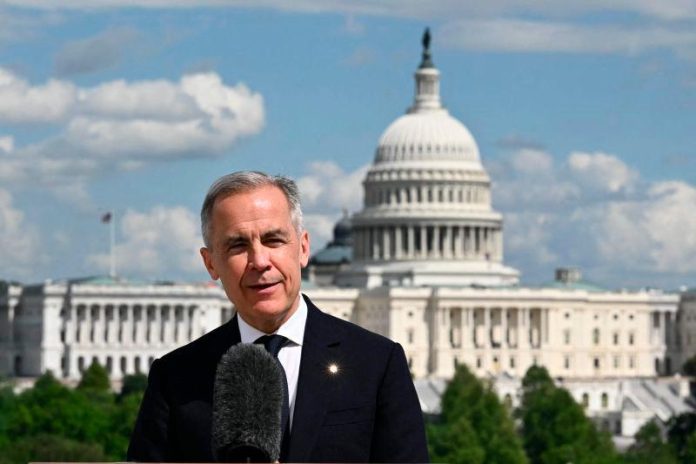WASHINGTON: Canadian Prime Minister Mark Carney on Tuesday said trade negotiations with President Donald Trump were “very complex,“ but that a meeting at the White House had yielded some progress.
The United States imposed broad tariffs on imports of Canadian goods at the beginning of March before announcing several reductions and exemptions, while Canada has hit back with counter measures.
The trade feud was a key issue of talks between Trump and the Canadian prime minister, who was making his first trip to the United States since winning election last month.
“We’re having a very complex negotiation about a wide range of issues… you don’t expect to have specific progress as things move along, even when you’re making progress,“ Carney told reporters after the meeting with Trump.
Before the talks, Trump adopted a bellicose tone, answering “no” when asked whether there was anything the Canadian leader could say to convince him to lift the tariffs on his northern neighbor.
“We have a tremendous deficit with Canada,“ Trump told reporters during an event at the White House, sitting alongside Carney.
“It’s hard to justify subsidizing Canada to the tune of maybe $200 billion a year,“ he said, adding: “We protect Canada militarily, and we always will.”
The United States’ trade deficit with Canada was $63.3 billion last year, according to the US Trade Representative’s office.
The White House says the far higher figure of $200 billion often cited by Trump also takes into account how much it says US defense spending benefits Canada.
“We don’t really want cars from Canada, and we put tariffs on cars from Canada,“ Trump said. “And at a certain point, it won’t make economic sense for Canada to build those cars.”
“We really don’t want Canadian steel, and we don’t want Canadian aluminum and various other things, because we want to be able to do it ourselves,“ he added.
In theory, Canada should be protected against US tariffs by the North American free trade agreement, which was renegotiated during Trump’s first term in office.
Carney said the meeting with Trump marked the start of renegotiation of that existing deal, formally called the United States-Mexico-Canada Agreement (USMCA), which was due to be reviewed by July of next year.








